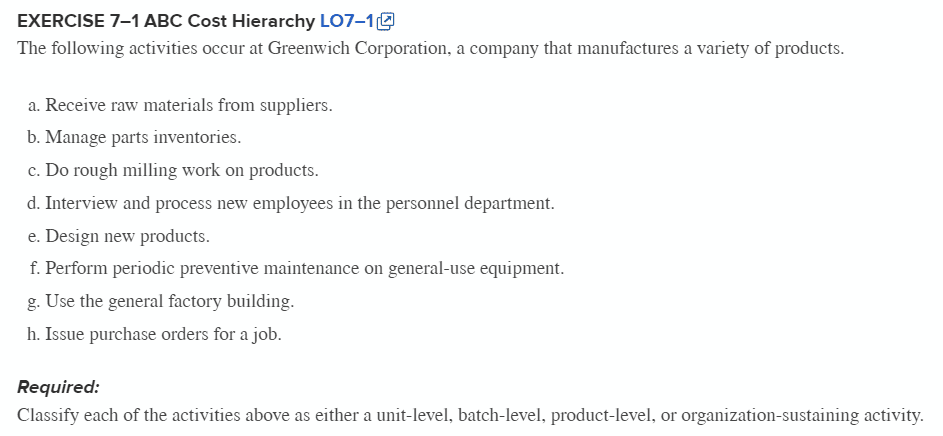
The franchisor is responsible for coordinating financial statements from all the franchise units, while the franchisee manages the day-to-day accounting process of each unit. Franchise accounting is essential for the success of the franchise business. It provides accurate financial information that helps the franchise owner make informed decisions about the business. Without proper accounting, the franchise owner may not be aware of the financial health of the business, which can lead to poor decision-making and ultimately, failure. Compliance tools within the software system help with tracking and reporting on fees, royalties, and marketing expenses. Because franchises operate in multiple locations, franchisors must abide by for income and sales tax regulations for multiple jurisdictions.

Key Bookkeeping Practices for Franchisees
Moreover, franchises often pay specific standardized costs for inventory, equipment, marketing materials, and the like. Bookkeeping franchise opportunities often come with comprehensive training and support programs, which can help you get up and running quickly. This support can range from initial training to ongoing consulting, how to do payroll accounting and it can be invaluable for small and medium-sized businesses looking to grow their bookkeeping services. Ready to take your bookkeeping outside the company, but not sure who to call?
Bookkeeping for Artists: Simplifying Finances for Creative Professionals
- The franchisor and the franchisee have unique bookkeeping needs that need to be met to build a successful business and ensure the franchise thrives.
- However, not all brands are as transparent as they could be or have a financial performance representation they feel will be beneficial to show it to prospects.
- For other expenses, consider if they are essential for the core functions of the business.
- Let us handle your franchise bookkeeping so you can return to handling business.
Dive into the world of franchise businesses, where established brands and budget vs target support systems entice entrepreneurs. We’ll uncover the financial intricacies that drive franchising, transforming complexity into clarity. Franchise accounting can be defined as the process of managing financial transactions and records of a franchise business.
Power your franchise accounting with North One business banking
Learning from successful practices across different franchise locations fuels success. How franchisees will pay marketing fees depends on their franchise agreement. The fees are then recorded as expenses in the period they are incurred. Without a reliable bookkeeper, you may not have the time or experience to track your franchise revenue and expenses. Poor maintenance your of accounts can lead to cash flow issues and staffing problems due to off-base sales reports.
They also offer valuable financial resources and training to their franchisees, ensuring that they are equipped to provide the best possible service to their clients. Bookkeeping franchises typically offer a range of services, including payroll, tax preparation, financial reporting, and other bookkeeping services. The franchisee is responsible for providing these services to their clients while following the franchisor’s established business model and guidelines. Bookkeeping franchises are a type of franchise business that provides bookkeeping services to small and medium-sized businesses.
The Xendoo bookkeepers can even provide “catch up” services for your existing franchise partners to utilize as a part of the seamless onboarding process. A cash flow statement shows the amount of cash entering and leaving a business over a specific period. It helps to track the franchise’s ability to generate cash flow and maintain operational efficiency. Accurate cash flow records are vital for managing a franchise’s working capital requirements and ensuring cash is available when needed. Marketing fees are monthly fees that franchisors and franchisees pay to advertise their business.
Choosing the Right Bookkeeping Software
We take monthly bookkeeping off your plate and deliver you your financial statements by the 15th or 20th of each month. Xero has a robust open API, so it integrates with a wider range of business applications. This can be advantageous for franchises with complex operational needs. Deviating from these requirements could damage the brand reputation, so they often lead to sanctions from the franchisor. FAiling to follow these SOPs can lead to penalties or even termination of the franchise agreement. We provide valuable financial analysis and insights to help you make informed decisions, optimize operations, and improve profitability.
As a franchise owner, you likely deal with franchisees who each have their own method for balancing the books. Dealing with inconsistencies in sales reporting, inventory management, and royalty payments can cause stress and anxiety, not to mention mess with your bottom line. Investing in a bookkeeping franchise can be a lucrative opportunity for entrepreneurs interested in the financial services industry. The franchise business model provides a proven system for success, and the demand for bookkeeping services is expected to continue to grow.
Franchisors often require franchisees to submit standardized depreciation rate reports on a regular basis. Up-to-date records make this process smooth and ensure compliance with the franchise agreement. With accurate data, they can make better-informed decisions about pricing, staffing, inventory, and marketing investments. Knowing the details of income and expenses helps them avoid unexpected shortfalls, too.
It isn’t realistic to expect that you’ll be able to do the same without any training. Shoeboxed integrates with popular accounting software, such as QuickBooks, Xero, and Wave, allowing easy data transfer and synchronization. Once the data is categorized, Shoeboxed generates detailed expense reports, providing insights into spending patterns and helping with financial planning and analysis. Shoeboxed is a two-in-one receipt scanner that over a million businesses use to automate expense management. For each location, the franchisor sells the rights to the franchise to individuals. For other expenses, consider if they are essential for the core functions of the business.
